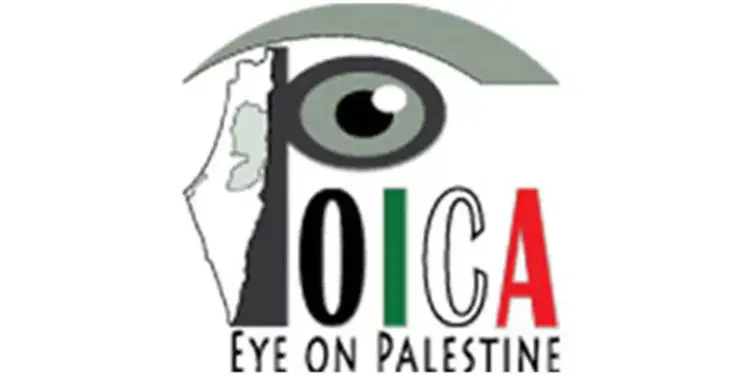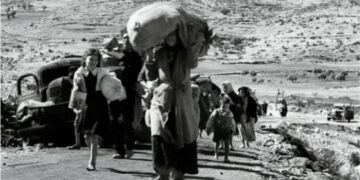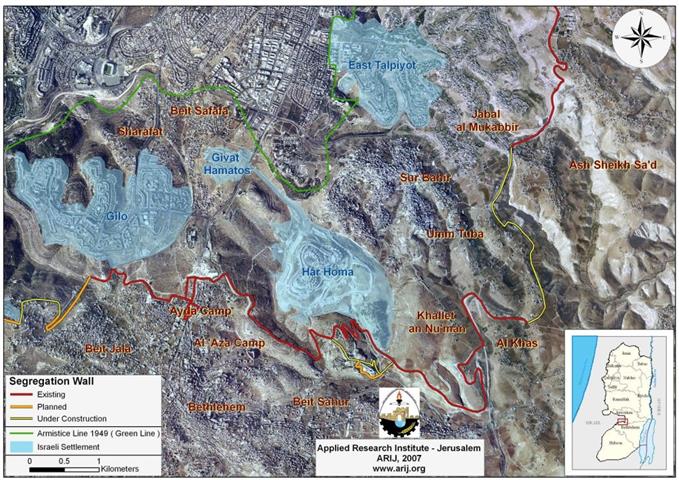For a country that keeps claiming that it is the only liberal and democratic place in the Middle East, Israel is defiantly going through self-delusional times more than ever, and at the same time deluding the world of that highly exaggerated and misleading piece of information. However, that is not something new to Israel, the country that portrays above the international law and United Nations Security Council resolutions; as dozens of resolutions are in the standby status for Israel to conform to them.
In the occupied Palestinian territory, Israel has broken and violated almost the entire scroll of international law since 1967. Distinctively, 'Collective Punishment,' the internationally abolished decree is operative by the State of Israel as it has always been throughout the past four decades of occupation, and even though the level of implementation varied over the years, certainly it has tuned-up since the year 2000 with the second Palestinian Intifada, still Israel went on with its policy in apathy of the Palestinians and the international community, knowing that its action will go with impunity.
Israel has used collective punishment policy for a long time against members of the Palestinian resistance specifically and the overall general population, in both cases, the Israeli policy greatly manifested in the Houses’ demolition policy, uprooting trees, land confiscation, imprisonment of family members as a mean of pressure. Then again, Israel collective punishment policy has taken an entire new level when it started to persecute an entire province using inhumane methods and practices to justify its security needs. The siege Israel is imposing on the Gaza Strip is of such kind, and today the Israeli government and its military institution have decided to punish the 1.5 million Palestinians living in the Gaza Strip for their democratic vote to the 2006 PLC election and manipulate them to inflict political pressure on certain Palestinian groups in the Gaza Strip. What make things worse is that Israel tried to legitimize its action against the people of Gaza using the Israeli law and courts, even though the Israeli judges and legislators are will aware of the fact that they have no jurisdiction over the Israeli Army in the Occupied Palestinian territory and that the latter operate on a different set of codes (military laws) while in the West Bank and the Gaza Strip.
If not 'Collective Punishment,' what else can you call it?
On September 19, 2007, Israel's security cabinet voted to declare the Gaza Strip an 'enemy entity,' as a first step to legalize its plan to induce collective punishments on the residents of the Gaza Strip, and to cut off all vital resource to it (electricity, fuel, and goods), in addition to restricting the movement of people there. The Israeli step allegedly comes inflict pressure on Hamas rule there. Israel proclaimed procedures did not echo well in the world, in fact it was widely condemned world wide, it even drew criticism from the United Nations Secretary-General Ban Ki-moon, who described Israel’s plan to cutoff of vital services 'contrary to Israel's obligations towards the civilian population under international humanitarian and human rights law.'
On their part, Israel said that the cutoffs are not designed to induce humanitarian crises. This translates that Israel will keep the Palestinians’ lives hanging by a thin rope, and that it will hold the tube of life and they are in control to squeeze at their well.
Like it or not, the so-called Israeli disengagement in 2005 from the Gaza Strip does not relieve Israel from its responsibility as an occupying power, in fact all what Israel did is relieve the Israeli budget from a money drainage liability, yes that what the Israeli settlements and settlers in the Gaza Strip were to the Israeli State, which is why the word 'redeployment' is best to describe the Israeli step back in 2005; hence Israel remain an occupying power in the Gaza Strip as long as it keeps controlling day-to-day life activities of the Palestinians there and more than that as long as it keeps control of vital aspects of life; Gaza’s airspace, territorial sea limits, and land borders.
Israeli state prosecutors have refused allegations by the UN and the EU, among others, that the Israeli steps against the Gaza Strip mount-up to a 'collective punishment' act.
Under international humanitarian law and any civilized law, Collective punishment is prohibited, outlawed, and just illegitimate no matter what were the excuses under which it is carried out. It says that it is unlawful to inflict punishment on a group of people in retaliation for offenses that they did not commit in person.
|
'The price of occupation is the loss of the Israeli Defense Forces' semblance of humanity and the corruption of all of Israeli society.' They reported firing at Palestinians who hadn't endangered them, stopping ambulances at checkpoints, and stripping areas clean of groves and trees necessary to people's livelihoods. Some fear their treatment of Palestinian civilians constitutes war crimes. Attacks on a civilian population as a form of collective punishment violate Article 50of The Hague Regulations and Articles 33 and 53 of the Fourth Geneva Convention. ISRAELI RESISTERS AND PALESTINIAN RIGHTS Professor Marjorie Cohn |
::::::::::::_
[1] No general penalty, pecuniary or otherwise, shall be inflicted upon the population on account of the acts of individuals for which they cannot be regarded as jointly and severally responsible. Laws and Customs of War on Land (Hague IV); October 18, 1907, Article 50
[2] No protected person may be punished for an offence he or she has not personally committed. Collective penalties and likewise all measures of intimidation or of terrorism are prohibited. Convention (IV) relative to the Protection of Civilian Persons in Time of War, Geneva, 12 August 1949, Part III : Status and treatment of protected persons, Section I : Provisions common to the territories of the parties to the conflict and to occupied territories, Article 33
Prepared by
The Applied Reserach Institute – Jerusalem












